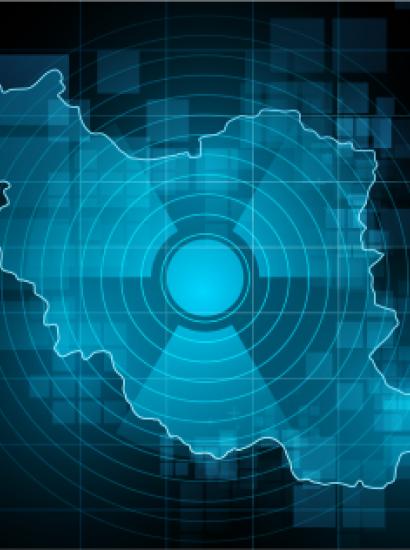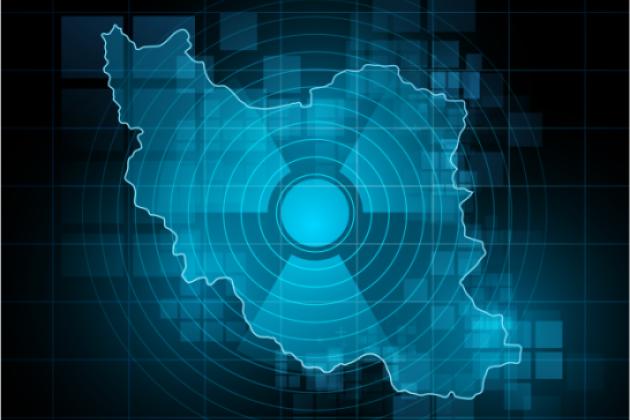- International Affairs
- US Foreign Policy
Under the present regime Iran has every reason to want nuclear weapons. Two of Iran’s neighbors, Iraq and Afghanistan, have been invaded by the United States, a country that Iran’s leaders routinely refer to as “the Great Satan.” President George W. Bush named Iran a member of the “axis of evil.” Sectarian divisions in the Middle East are becoming more acute. Iran is feared and loathed by neighboring Sunni states. Iran has sponsored transnational terrorist attacks around the world not only in the broader Middle East. The Iranian regime has lots to fear.
The possession of nuclear weapons or the capacity to acquire such weapons on short notice will deter external enemies and provide Iran with a larger umbrella under which to engage in subversion across the Middle East. Consider one not so far-fetched scenario: Tensions between Israel and Hezbollah increase. Hezbollah considers launching rockets that can reach Jerusalem, and Tel Aviv. It is common knowledge that many of these rockets are supplied by Iran. What would Hezbollah decide to do? In a world in which Iran does not have nuclear weapons Iran would have to think very hard about approving such an attack by Hezbollah because Israel could retaliate against Iran as well as against southern Lebanon. Iran would almost certainly get the worst of such an exchange. In a world in which Iran does have nuclear weapons, or at least there is a widespread belief that they have such weapons and the ability to deliver them, Iranian leaders would be more willing to authorize a rocket assault against Israel from Lebanon. Israel might still strike Iran, but then again it might not. Any Israeli leader would have to be concerned about nuclear retaliation from Iran that would end Israel’s existence. Israel would be able to annihilate Iran if it did use nuclear weapons, and this might deter Iran. But then again it might not. The Iranian leadership might not have full control over its nuclear arsenal. The prospects for either a devastating nuclear war or an Israel under constant threat of long range rockets are much higher in a world in which Iran has nuclear weapons. More generally, a nuclear armed Iran would be more secure from foreign attack than an Iran without nuclear weapons if only because of uncertainty about whether elements in the Iranian regime would opt for mutual annihilation rather than mutual survival.
The nuclear deal with Iran has not eliminated the possibility that Iran can procure nuclear weapons. If fully implemented by all parties the best that the agreement can accomplish is to push Iran’s ability to acquire nuclear weapons to a year rather than a couple of months. The agreement has not, however, ended the threat that a nuclear armed Iran poses for the Middle East and the rest of the world.
The only permanent solution to the threat of a nuclear armed Iran is a different regime in Teheran. Iran’s hostility to its neighbors, Israel and the Sunni Arab states, is not dictated by any set of structural conditions. A regime that was open to international markets and western ideas would improve the well-being of most of its citizens.
The United States and other western countries, however, have very little ability to influence such a regime transition. The long history of economic sanctions against autocratic regimes has demonstrated that such sanctions might work against personalistic regimes, whose rulers need funds from external sources to stay in power. Economic sanctions do not work against party based or military autocratic regimes, which have the capacity to control dissent within their own country and to pass off the cost of sanctions to those elements of the population that do not support the regime anyway. Even if the United States had been able to get support for more extensive sanctions, which was always highly unlikely given the need for buy-in from Russia and China, it would not have been able to bring down the Islamic Republic. The theocratic autocracy that governs Iran will fall someday, but that day will be determined by the citizens of Iran, not by external actors.
Given that a nuclear armed Iran, or even an Iran within a couple of months of a nuclear weapon, is a bad thing and given that external sanctions cannot bring down the Iranian regime, the agreement is better than no agreement since it provides more time for the possibilities of internal developments that could upend the current Iranian regime.
The agreement, however, has gotten far too much attention. The agreement has not put an end to the possibilities of a nuclear armed Iran. The agreement has not weakened the position of the Iranian regime.
Iran demands a regional strategy. In some places in the Middle East (notably Syria) American policy has been driven to incoherence by the fact that the enemies of our enemies are also our enemies. This is not the case for Iran. The enemies of Iran are friends or at least share some interests with the United States. This includes the major Sunni states Saudi Arabia, Jordan, the Gulf States, and Egypt, as well as Israel. The challenge for the United States is that our potential allies are not exactly friendly with each other. The United States should focus on building a regional alliance structure that would contain Iranian ambitions. Given the antipathies among our allies there is no possibility for a multilateral alliance of the kind that we have in Europe. Given that the interests of our potential allies are not entirely consistent with our own, we cannot provide any sort of blanket guarantee like NATO’s Article 5. But what the United States should focus on, and publicize, is strengthening our bilateral security support for those countries that are most threatened by Iran. Instead of putting so much emphasis on the nuclear deal with Iran, which is at best only a temporary expedient, we need to focus more on isolating Iran in the region and the world.
Stephen Krasner is the Graham H. Stuart Professor of International Relations at Stanford University, and Senior Fellow at the Freeman Spogli Institute and the Hoover Institution
















